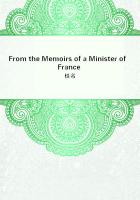The northeaster was developing. It was now raining hard and the wind was rising. The gusts swept across the top of the little hill and the window sashes of the For'ard Lookout rattled and the hinges of the ancient blinds squeaked. The yard, which had been so attractive, was shorn of its decorations. The tables had been carried inside; the lanterns taken down; the wonderful sign, pride of the talented Mr. Bemis, had been tenderly conveyed to the attic.
Cook, waitresses and salesgirl had departed. The tea-room and gift shop had gone into winter quarters to hibernate until the following spring.
The rooms inside had been thoroughly swept and cleaned and most of the furniture and the best of the old prints covered with dust cloths. Some of the smaller articles, however, were still upon the shelves of the gift shop, Mary having ordered her assistants to leave them there, as she wished to look them over herself before putting them away. Some of her selections for stock had sold remarkably well and she had been obliged to reorder many times; others of which she had been quite confident when purchasing had not sold at all. Both good sellers and bad she meant to list as a guide to future choosing.
She was listing them now. Alone in the room which had once been the sacred best parlor of the little house, she was seated at the table, pencil in hand and memorandum books and paper before her. There was no particular reason why the listing should have been done that day; it might have been done any day until the weather became too cold to work in an unheated house. That morning she had had no idea of doing it that afternoon. She was doing it now because she felt that she must do something to occupy her mind, and because she wished to be alone. Up there at the For'ard Lookout she could combine the two--work and seclusion.
When Mr. Keith told, at the store that morning, the news of Edwin Smith's--or Edgar Farmer's--death she had been dreadfully shaken by it. It was so sudden, so unexpected--when she last heard the man was, so the doctors said, almost well. She had thought of him often enough during the past year; or, rather, she had thought of Crawford as being with him and of the father's joy in his son's return to him and the knowledge that his own disgraceful secret would not be revealed. And she had pictured Crawford as finding solace for his disappointed love in his father's society. That Edgar Farmer had been what Isaiah called him--a blackguard--she realized perfectly, but she was equally sure that, as Edwin Smith, he had been the kindest and most loving of fathers. And Crawford, although he had been willing to leave him because of her, loved him dearly.
And now he was dead, and Crawford was left alone. Somehow she felt responsible for the death. That it had been hastened by the terrible alarm and stress of the previous year was, of course, certain. She thought of Crawford alone and with this new sorrow, and this thought, and that of her responsibility, was almost more than she could bear.
She felt that she must write him, that he must know she had heard and was thinking of him. So, after leaving the store, she had hastened down to the house and up the back stairs to her room.
There she had written a few lines, not more than a note, but the composing of that note had been a difficult task. There was so much she longed to say and so little she could say. When it was written she remembered that Crawford was in Boston and she did not know his address. She determined to send the letter to the Nevada home and trust to its being forwarded.
She took from the back of the drawer the box of photographs and looked them over. As she was doing so Isaiah called her to dinner.
Then she heard her uncles come in and, because she felt that she could talk with no one just then, she avoided them by hastily going down the front stairs. She made a pretense of eating and left the house. Isaiah did not see her go. After stopping at the store long enough to tell Mr. Crocker she would be at the tea-room that afternoon, she climbed the hill, unlocked the door of the For'ard Lookout, entered and began her work.
The wind howled and whined and the rain beat against the windows.
The blinds creaked, the sashes rattled, the gusts moaned in the chimney above the fireplace, and all the hundred and one groanings and wailings, the complaints of an old house in a storm, developed.
All these sounds Mary heard absently, her mind upon her work. Then, little by little as they drew nearer, she became conscious of other sounds, footfalls; someone was coming up the walk.
She did not rise from her chair nor look up from her work when the outside door opened. Even when the footsteps sounded in the little hall behind her she did not turn.
"Yes, Uncle Shad," she said. "I am here, and I'm safe and I'm perfectly dry. Also I'm very, very busy. Now, why did you come out in the rain to hunt me up? And I'm quite sure you haven't put on your rubbers."
And then the voice behind her said: "Mary."
She turned now--turned, looked, and rose to her feet. Her face went white, then flushed red, and then paled again.
"Oh!" she gasped.
Crawford Smith was standing there. His light overcoat--it was not a raincoat--dripped water; so did the hat in his hand. He stood there and looked--and dripped.
"Mary," he said again.
She caught her breath, almost with a sob.
"You!" she exclaimed. "YOU! Oh, how could you? WHY did you come?"
He took a step toward her. "Because I felt that I must," he said.
"I had to come. I came to see you once more. You must forgive me."
She did not speak. He continued:
"You must forgive me for coming," he said again. "There was a question I had to ask and only you could answer it. It isn't the question I asked before, although perhaps that-- But first I must tell you: Mary, my father is dead."
She nodded. She could scarcely trust herself to speak, but she tried.
"Yes, yes," she faltered. "I--I know."
"You know?" he repeated.
"Yes, Mr. Keith told us this morning. He said he met you in Boston."
"Yes, I had forgotten; so he did."















